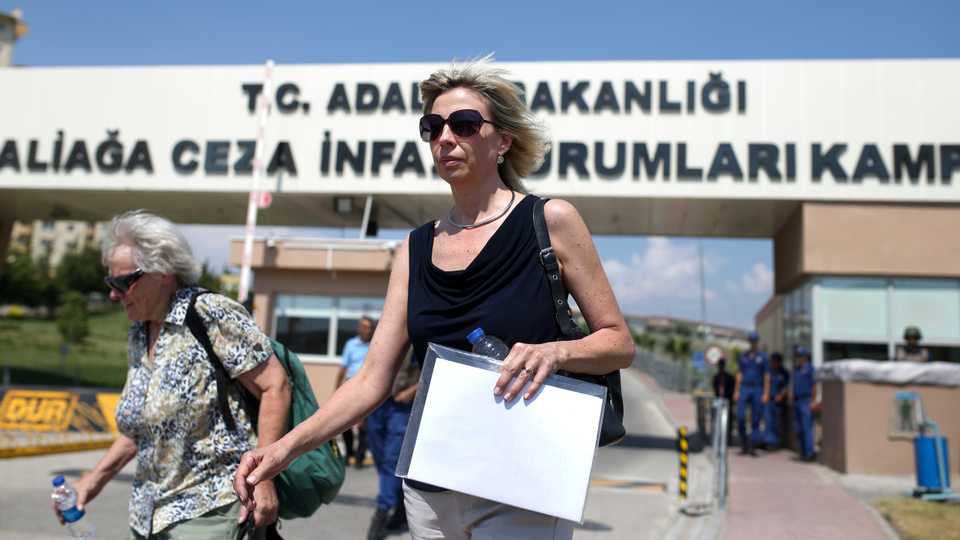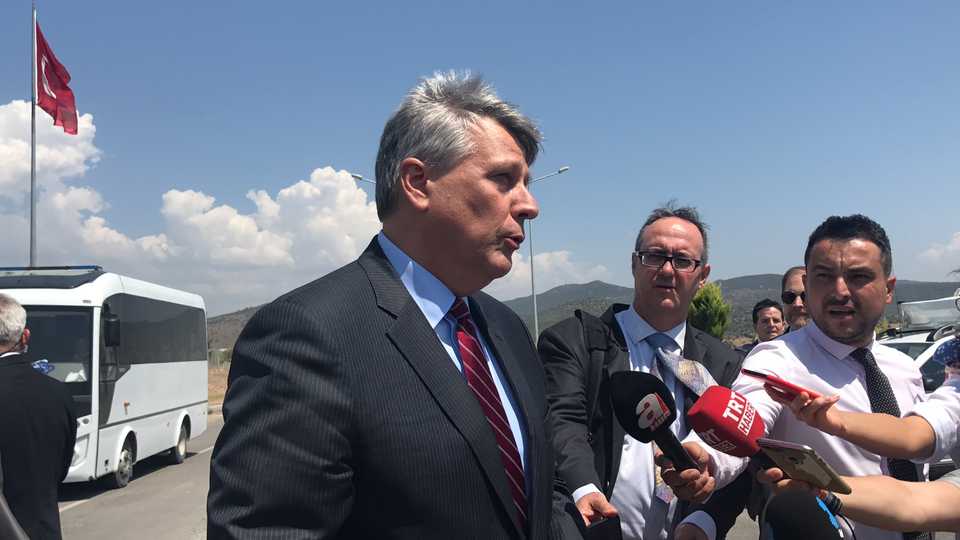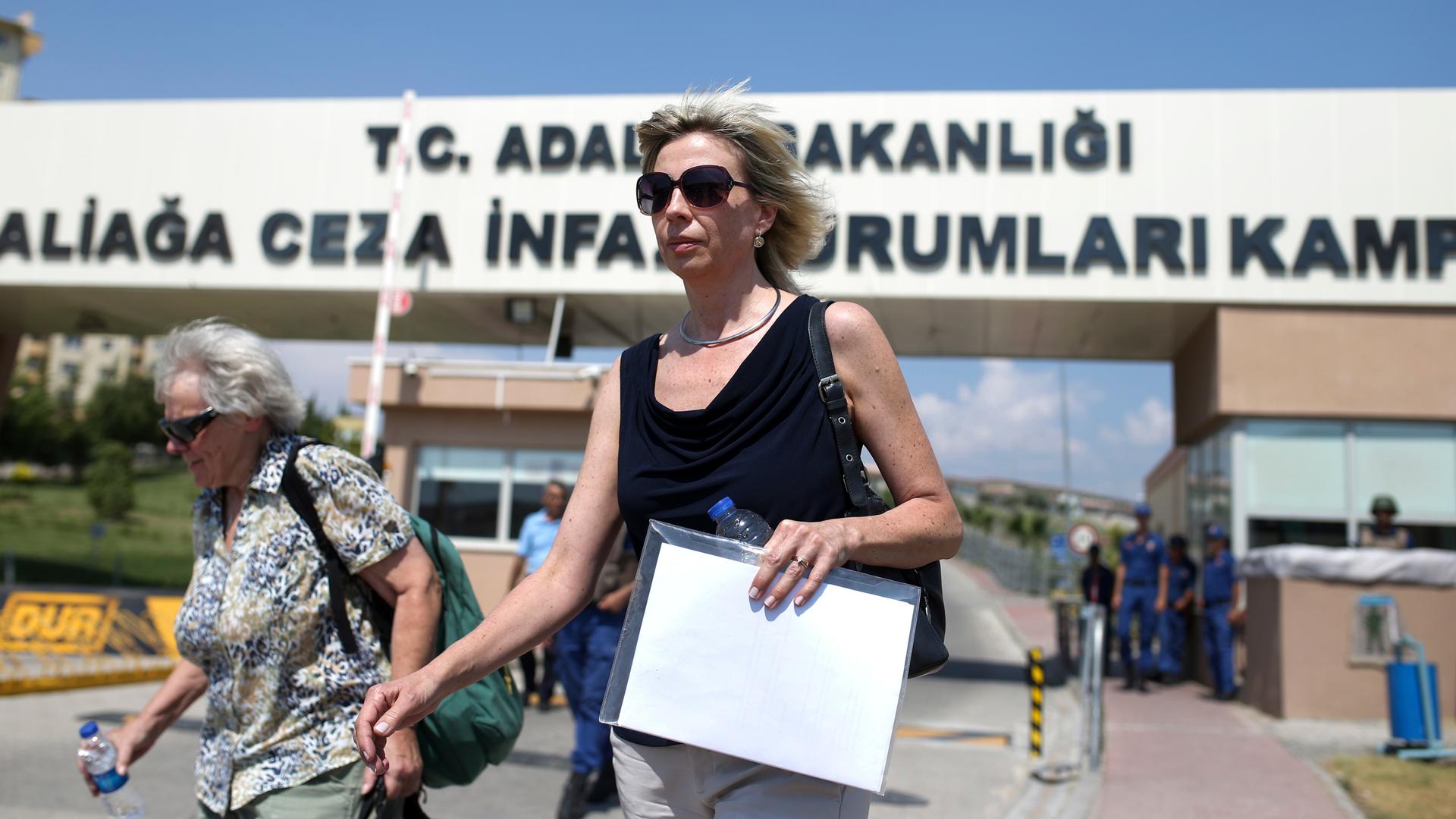
A Turkish court has ruled that an American pastor facing terrorism and spying charges should remain in custody during his upcoming trial.
Andrew Brunson, a Christian pastor from North Carolina who has lived in Turkey for more than two decades, was indicted on charges of helping the Fethullah Terrorist Organisation, the group that carried out the defeated coup in Turkey which killed at least 250 people and injured nearly 2,200, as well as supporting the outlawed PKK terror organisation.
Brunson, who denies the charges, faces up to 35 years in jail if found guilty.
“It is really hard to stay in jail and be separated from my wife and children,” Brunson, wearing a black suit and a white shirt, told the court in Turkish.
“There is no concrete evidence against me. The disciples of Jesus suffered in his name, now it is my turn. I am an innocent man on all these charges. I reject them. I know why I am here. I am here to suffer in Jesus’s name.”
US President Donald Trump late on Wednesday said in a tweet that Erdogan “should do something to free this wonderful Christian husband & father,” saying that Brunson has “been held hostage far too long.”
A total disgrace that Turkey will not release a respected U.S. Pastor, Andrew Brunson, from prison. He has been held hostage far too long. @RT_Erdogan should do something to free this wonderful Christian husband & father. He has done nothing wrong, and his family needs him!
— Donald J. Trump (@realDonaldTrump) July 19, 2018
The US Senate passed a bill last month including a measure that prohibits Turkey from buying F-35 Joint Strike Fighter jets because of Brunson’s imprisonment and Turkey’s purchase of Russia’s S-400 air defence system.
However, last month Prime Minister Binali Yildirim told Turkish news channel Star TV on that the US Senate decision to block the sale would not affect its delivery.
“[US Senate decision] would not affect the delivery of F-35s,” Yildirim said in an interview to Turkish news channel Star TV that was reported by the state-run Anadolu News Agency.
A few days later, the company took delivery of the first of the jets.
The US envoy to Turkey said he was “disappointed” by the ruling of the court in the Aegean province of Izmir, where Brunson had been living.
“Our government is deeply concerned about his status and the status of other American citizens and Turkish local employees of the US diplomatic mission who have been detained under state of emergency rules,” Charge d’Affaires Philip Kosnett told reporters outside the courtroom.

“We have great respect for both Turkey’s traditional role as a haven for people of faiths and Turkey’s legal traditions,” he said. “We believe this case is out of step with these traditions.”
Erdogan has previously linked Brunson’s fate to that of Fethullah Gulen, a US-based Muslim cleric who orchestrated a defeated coup in Turkey which killed at least 250 people and injured nearly 2,200.
The spokesman of Turkey’s governing AK Party, Mahir Unal, said that just as Washington had responded repeatedly to Ankara’s requests for Gulen’s extradition by saying it was a matter for the US courts, so Brunson’s fate was a judicial matter.
Brunson was pastor of the Izmir Resurrection Church, serving a small Protestant congregation in Turkey’s third-largest city, south of the Aegean town of Aliaga where he is now on trial.
His lawyer Ismail Cem Halavurt had raised hopes that Brunson could be released as the prosecution witnesses finish testifying.
But Halavurt said on Wednesday the prosecution has added the testimony of two new anonymous witnesses to the case and that the court would reconvene on October 12 to hear them and view new evidence.
Brunson’s trial is one of several legal cases that have raised tensions between Washington and Ankara. A US judge sentenced a Turkish bank executive in May to 32 months in prison for helping Iran evade US sanctions, while two locally employed US consulate staff in Turkey have been detained.
The two NATO allies are also at odds over US policy in Syria, where Washington’s ally in the fight against Islamic State is the YPG, which Turkey says is an extension of the PKK, which has waged a three-decade insurgency in southeast Turkey that has left thousands dead.










Discussion about this post